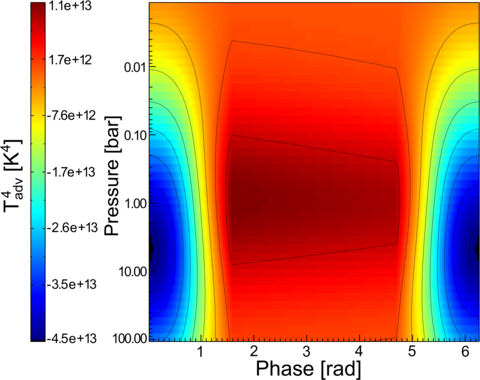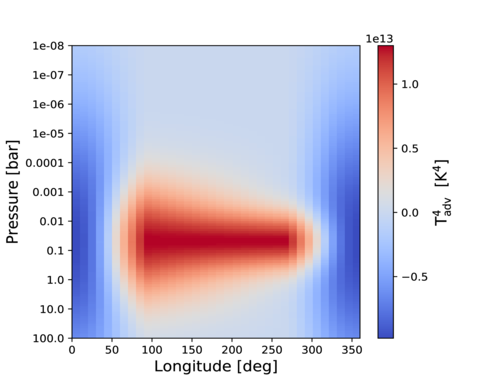Physically-Consistent Multi-Dimensional Temperature Structure for Retrieval
- New York University Abu Dhabi, Abu Dhabi, UAE (jasmina@nyu.edu)
The planetary multi-dimensional nature poses many challenges to their atmospheric modeling. However, as targets and data quality improve with the TESS and CHEOPS missions and soon to be launched JWST, PLATO and ARIEL missions, so too must our modeling approach if we would like to assess a truly 3D picture of planetary atmospheres. We present a physically-consistent GCM-motivated multi-dimensional temperature model, that utilizes the dominant dynamical property of short-period tidally-locked planets, the planetary jet, and accounts, for the first time, for the advection of energy around the planet. In our approach, we utilize a tractable set of parameters efficient enough to enable Bayesian analysis and return physical insights not yet retrieved for exoplanets. By fundamentally linking the planetary longitudes and retrieving spectra at all orbital phases simultaneously, we recover three essential properties of the planetary jet (phase offset, amplitude, and pressure where the jet is located) together with the self-consistent temperature structure.


Figure 1: Two examples of our parameterized advective temperature component at the equator.
How to cite: Blecic, J.: Physically-Consistent Multi-Dimensional Temperature Structure for Retrieval, Europlanet Science Congress 2020, online, 21 September–9 Oct 2020, EPSC2020-890, https://doi.org/10.5194/epsc2020-890, 2020

